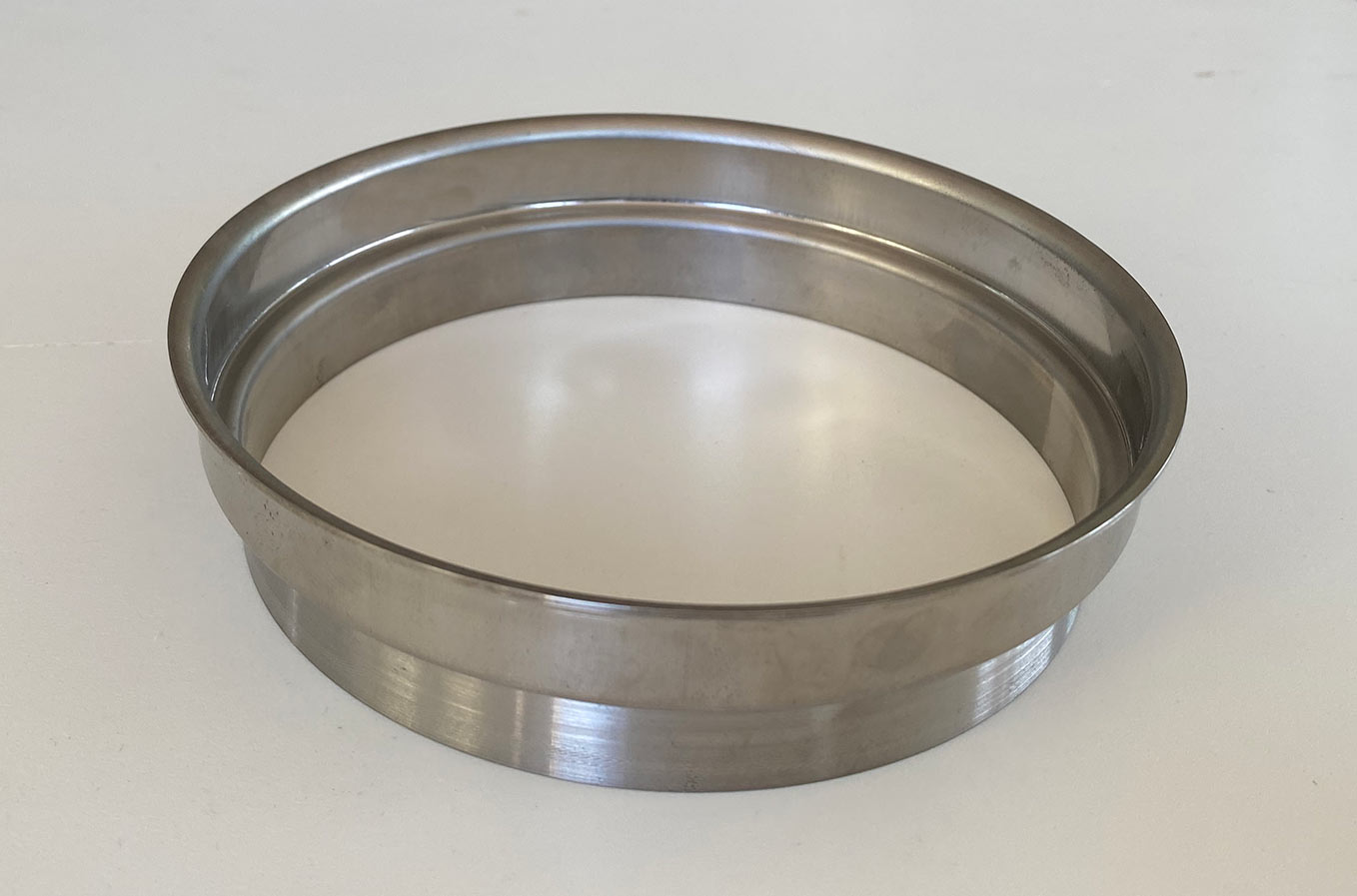Evans’ deep drawn and progressive die Kovar stampings
Glass-to-metal and ceramic-to-metal seals benefit from the thermal expansion properties of our deep drawn Kovar and other matched CTE metal products.
The Westinghouse trade name for an alloy of 53% iron, 29% nickel, 17% cobalt and 1% trace elements, Kovar has a thermal expansion very close to glass and therefore is often used for glass-to-metal and ceramic-to-metal seals. These hermetic seals require processing at more than 700°F for the glass to melt. As the part cools the connection will fail or develop leaks if the coefficients of thermal expansion are markedly different.
Kovar® seals are used in the electronics industry for bonding metal parts to glass envelopes or leads, as in power tubes or x-ray tubes, and in the semiconductor industry for connections in integrated and discrete circuits. Kovar has thermal conductivity of 16.8 W/mk, electrical resistivity of 0.49 microhm-m and an expansion coefficient of 5 ppm/°C.
The Evans Company works with thermally compatible materials like Be-Cu, Kovar, and various other refractory metals to make parts for many types of hermetic seal assemblies. These seals typically are used whenever two metal parts have to be connected without touching, a vacuum tight or leak tight seal created, and an electrical isolation created all at the same time. The glassing between the metals is done by others, companies that have developed many special types of glass and ceramics for a wide variety of products.
Working on a project using Kovar? If we can help, please click here.

